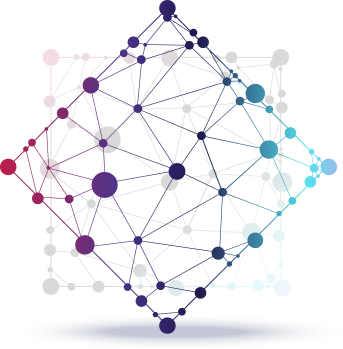- Beyond the Classroom: Fresh Reforms and Opportunities in ghana education news Drive National Progress
- Expanding Access to Quality Education
- Curriculum Reform and Skills Development
- Teacher Training and Professional Development
- Partnerships and Collaboration
Beyond the Classroom: Fresh Reforms and Opportunities in ghana education news Drive National Progress
The landscape of ghana education news is currently undergoing a period of significant transformation. Driven by governmental initiatives, increased investment, and a growing recognition of the crucial role education plays in national development, the sector is evolving rapidly. From curriculum reforms aimed at bolstering STEM skills to expanded access to tertiary education, numerous changes are shaping the future of learning for Ghanaian students. This article delves into the specifics of these developments, exploring the opportunities and challenges encountered, and highlighting the collaborative efforts driving progress.
These advancements aren’t merely isolated policy changes; they represent a concerted push to modernize the educational system, equipping the next generation with the tools and knowledge necessary to thrive in a globally competitive world. The focus is increasingly shifting towards practical skills, critical thinking, and innovation, aiming to move beyond rote memorization and foster a more dynamic and engaging learning environment.
Expanding Access to Quality Education
One of the primary focuses of current education policy in Ghana is widening access to quality education for all citizens, regardless of their socioeconomic background or geographical location. Numerous initiatives are in place to address historical disparities and ensure a more equitable distribution of educational opportunities. These range from the provision of scholarships and financial aid to vulnerable students to the construction of new schools and expansion of existing facilities, particularly in underserved communities. The government’s commitment to free secondary education has already yielded significant results, increasing enrolment rates and giving more young Ghanaians the chance to complete their high school education.
However, challenges remain. While enrolment rates are up, ensuring the quality of education provided in these expanded settings is crucial. Teacher training and professional development are vital components of this effort, equipping educators with the skills and resources needed to deliver effective instruction. Infrastructure limitations, particularly in rural areas, continue to pose obstacles, and addressing these requires sustained investment and strategic planning.
The integration of technology into education is also gaining momentum. Digital literacy is a key skill in the 21st century, and equipping students with the ability to navigate and utilize digital tools is paramount. Investment in computer labs, internet connectivity, and educational software is steadily increasing, although challenges remain in bridging the digital divide. Here’s a snapshot of current student to computer ratios across different regions:
| Greater Accra | 1:5 |
| Ashanti | 1:8 |
| Eastern | 1:12 |
| Northern | 1:20 |
| Upper West | 1:25 |
Curriculum Reform and Skills Development
Recognizing the need to align the education system with the demands of the modern workforce, Ghana is undergoing substantial curriculum reform. The emphasis is shifting from theoretical knowledge to practical skills, with a greater focus on STEM (Science, Technology, Engineering, and Mathematics) subjects. This shift aims to prepare students for careers in emerging fields and contribute to the country’s economic growth. New curricula are being developed and implemented, incorporating innovative teaching methodologies and promoting critical thinking, problem-solving, and creativity.
The incorporation of technical and vocational education and training (TVET) is a particularly important aspect of these reforms. TVET programs provide students with hands-on skills in various trades and industries, offering viable pathways to employment and entrepreneurship. Efforts are underway to elevate the status of TVET and make it a more attractive option for students, dispelling the outdated perception that it is a second-tier educational pathway. Funding and resources are being directed towards improving TVET infrastructure and providing high-quality training programs.
Here’s a list of key skills currently prioritized in the revised national curriculum:
- Problem-solving and critical thinking
- Digital literacy and coding
- Entrepreneurship and innovation
- Communication and collaboration
- STEM subjects (mathematics, science, technology, engineering)
Teacher Training and Professional Development
The success of any educational reform hinges on the quality of its teachers. Recognizing this, significant investment is being made in teacher training and professional development programs. These programs aim to equip teachers with the latest pedagogical techniques, subject matter expertise, and the skills needed to effectively utilize technology in the classroom. Ongoing professional development opportunities are essential to ensure that teachers remain up-to-date with evolving educational best practices.
The government is working to improve the initial training of teachers, strengthening teacher education institutions and providing more practical experience for aspiring educators. Mentorship programs are also being implemented, pairing experienced teachers with newer colleagues to provide guidance and support. The ultimate goal is to create a highly skilled and motivated teaching workforce that is dedicated to providing quality education to all students.
Ongoing assessments and evaluation of teacher performance are also crucial. Providing constructive feedback and identifying areas for improvement is essential for continuous professional growth. The following are key elements of the current national teacher training framework:
- Initial Teacher Education in Colleges of Education
- In-Service Professional Development programs
- Mentorship and Coaching Initiatives
- Continuous Professional Development (CPD) Courses
- Performance Appraisal and Feedback Systems
Partnerships and Collaboration
The journey towards improving education in Ghana isn’t solely a governmental endeavor; it requires strong partnerships and collaboration between various stakeholders. These include parents, communities, civil society organizations, the private sector, and international development partners. Collaboration allows for the pooling of resources, sharing of expertise, and the development of more effective and sustainable solutions.
Private sector involvement is particularly crucial in providing funding, infrastructure, and opportunities for internships and apprenticeships. International development partners play a vital role in providing technical assistance, funding, and capacity building support. Community involvement is essential to ensure that educational programs are relevant to local needs and that parents are actively engaged in their children’s education. Strong partnerships are the cornerstone of a thriving and equitable education system.
Here’s a table illustrating the contributions of key international partners to the Ghana education sector:
| UNICEF | Early Childhood Education, Girls’ Education |
| World Bank | Secondary Education Improvement Project (SEIP) |
| USAID | Teacher Training, STEM Education |
| DfID (UK Aid) | Skills Development, TVET |
The ongoing reforms and investments in ghana education news are laying the foundation for a brighter future for the nation. The commitment to expanding access, improving quality, and fostering innovation demonstrates a clear understanding of the transformative power of education. While challenges remain, the collaborative spirit and unwavering dedication of stakeholders offer hope for continued progress, ultimately shaping a generation equipped to contribute to Ghana’s prosperity and development.



